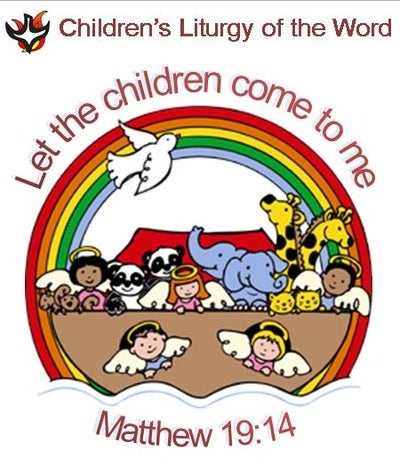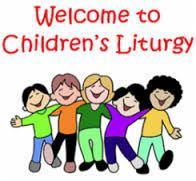
Children's Liturgy of the Word, or colloquially called "Kids Liturgy," is:
- a ritual for the proclamation of God’s Word with children, from K-6, appropriate to their age and understanding.
- appropriate for older children with a disability.
- a moment of salvation in which the living God communicates to children and in which they respond with praise, thanksgiving and petition.
- liturgy, not Sunday School teaching, nor child minding. It is modelled on, and leads to, participation in the Liturgy of the Word in the main assembly - proclamation, hearing and celebration. Other activities, such as colouring and activity sheets, can be useful as take home material for family follow-up, but they are not a substitute for the liturgical celebration of the Word.
- an opportunity to hear the Gospel message and consider how to practise it in life.

Role of Children's Liturgy of the Word Leaders
Children's Liturgy of the Word Leaders have a significant role in the parish, with responsibility for presiding over the liturgy, leading the assembly's prayer, and facilitating a homiletic reflection on the Word of God with those present. This person helps lead the children to an active participation in the Liturgy of the Word. They familiarise the children with the patterns, gestures and responses of the Liturgy of the Word so that gradually they can participate more fully in the adult Liturgy of the Word. They help the children to hear the scriptures proclaimed, understand the scriptures through a dialogue reflection, and respond in prayer and song. They undergo formation and are formally authorised by the Parish Priest (Directory for Masses with Children, 17 and 24; Diocesan Guidelines for Children's Liturgy of the Word, TBA).
Other Ministries Involved
The Reader at Children's Liturgy of the Word proclaims the scripture reading from the lectionary, understands what he or she is proclaiming and recognises that it is God speaking to the children in their proclamation. The reader is usually an older child or may be an adult reader or the leader.
